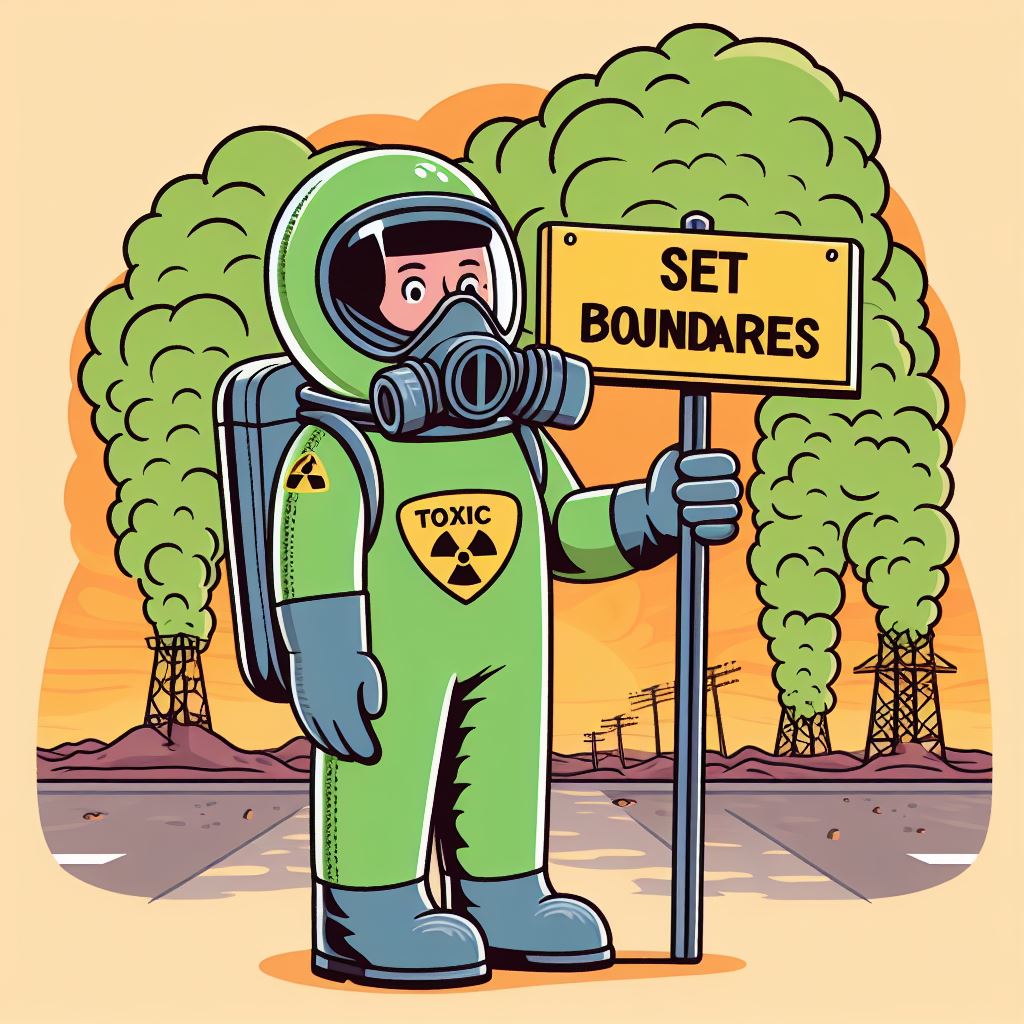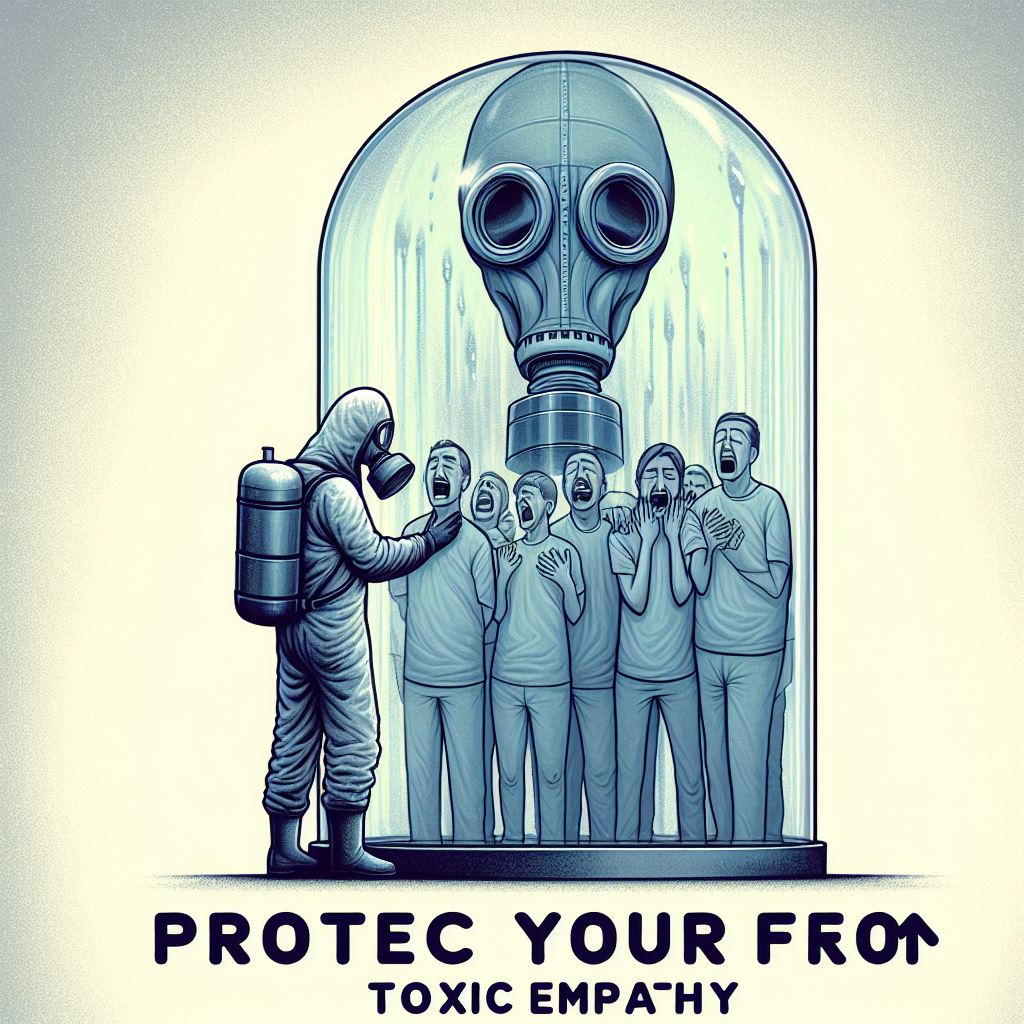Toxic empathy refers to an excessive, imbalanced form of empathy where someone becomes overly engrossed in others’ problems, often ignoring their own emotional needs in the process. Left unchecked, toxic empathy can take a toll both mentally and physically. However, by establishing firmer personal boundaries, seeking support, and cultivating self-compassion, it is possible to achieve greater balance around showing care for others.
Defining Key Characteristics of Toxic Empathy
Empathy itself refers to the ability to understand and share in the feelings and emotions of another person. In moderation, practicing empathy allows forming meaningful bonds and showing genuine compassion.
Toxic empathy differs in that it entails:
- Excessive emotional absorption – Becoming so preoccupied with others’ struggles you take them on as your own to an extreme, unhealthy degree.
- Poor personal boundaries – Overlooking and ignoring your own emotional limits and wellbeing in the process of trying to remedy others’ issues.
- Compulsive helping behaviors – Feeling involuntary driven to provide empathy and assistance even past the point of exhaustion or ability to help effectively.
Often toxic empathy stems from underlying factors like:
- Childhood dynamics where caretaking was a survival mechanism
- Ingrained fawning trauma responses
- Social pressures to be selfless and nice at all costs
When empathy transforms from a voluntary act of compassion to an obligatory compulsion, it has likely fallen into dangerous territory.
Recognizing Signs of Toxic Empathy in Yourself
To examine whether your attempts to show care for others have become disproportionate or unhealthy, scan for signs like:
Emotional and Physical Symptoms
- Feeling frequently drained, exhausted, overwhelmed from providing excessive empathy
- Neglecting your own basic self-care needs for sleep, nutrition, etc.
- Losing sense of your personal identity outside of being a caregiver
Difficulty Setting Boundaries
- Taking on ever-increasing help requests despite limited time and energy
- Extreme reluctance saying no due to guilt, people-pleasing tendencies
- Endlessly going out of your way for anyone exhibiting suffering
Sacrificing Your Own Wellbeing
- Continually prioritizing others’ wants and issues first
- Overextending yourself to the point of burnout trying to remedy friends/family problems
- Helping those close to you even when direct requests ignored
If these patterns feel unavoidable rather than deliberate, toxic empathy may be at play.
The Hidden Dangers of Toxic Empathy
Left unchecked, unhealthy levels of empathy and caretaking can spawn escalating issues including:
Deteriorating Mental Health
Trying to take on the crushing problems of those around you with little regard for your own limits often cultivates:
- Lingering stress from balancing overextending workloads
- Mounting anxiety as peoples pleasers dread saying no
- Eventual burnout, fatigue, and hopelessness from poured from an empty cup
Caretaking addiction places your nervous system under tremendous pressure.
Strained Relationships
When empathy becomes an ingrained compulsion rather than conscious choice, hidden rifts emerge, breading problems like:
- Resentment from imbalanced giving with little reciprocation
- Co-dependent dynamics that encourage learned helplessness
- Enabling behaviors that inadvertently reward toxic relationship and mindsets
Loss of Your Own Identity
In the race to rescue others from storms, toxic empathy guides often lose sight of their own inner compass, drifting directionless towards:
- Numbing out personal feelings and intuitions
- Disconnecting from core needs and emotions
- A vague sense of self dictated solely by others’ crises
Reclaiming your autonomous selfhood is critical.
How to Set Boundaries Around Toxic Empathy
Learning to temper and moderate empathy into balanced, sustainable levels with self-protective barriers in place allows staying centered while better assisting those who matter most.

Tuning Into Your Emotional Needs and Limits
- Start checking in more intentionally with your current emotional state before taking new issues on.
- Take stock honestly of what personal bandwidth you have to give vs. running on empty. Know your limits.
- Accept that no one can single-handedly fix entrenched issues– discuss only reasonable, bounded ways you can potentially assist.
Learning Diplomatic Ways to Say No

- When already overextended, don’t hesitate to politely refrain from assuming new volunteers obligations by saying “I can’t take that on currently, but could help brainstorm other potential solutions.”
- Prioritize activities that are essential to your basic self care first – sleep, healthy meals, stress relief. Those foundations must be solid before assisting others.
- For chronic help seekers, suggest establishing regular check-in calls where you offer empathy and advice in limited, managed blocks before disengaging.
Seeking Out Your Support System
- Confide in close, understanding friends about your private struggles with toxic empathy to ease the isolation.
- For ongoing issues, seek professional counseling to uncover root insecurities driving compulsive helping behaviors and build self-compassion.
- Join empathy burnout support groups to exchange stories and advice for establishing stability.
You cannot be fully available for others without first anchoring your own oxygen mask securely.
Achieving Greater Balance in How You Demonstrate Care
With healthier empathy guardrails installed, focus can shift to exercising more conscious discernment about when, where, and how much emotional energy gets channeled into others’ plights.
Judiciously Evaluating Which Problems You Can Reasonably Help Mitigate
- When requests for assistance arise, quickly gauge whether this issue realistically falls within your abilities or exceeds them by an order of magnitude.
- Categorize requests into “in my wheelhouse” vs. “outside my wheelhouse” columns, only volunteering for the former.
Offering Empathy in Smaller, Manageable Doses Before Disengaging
- Initiate conversations by asking if they would like 15-30 minutes of empathetic listening and support. Make boundaries clear upfront.
- Once time period edges to close, summarize key points made and recommend concrete next steps for them to independently move forward with.
- Thank them for opening up, reaffirm your confidence in their strengths/resilience, but signal session must wrap up with “I’m afraid I have to go now but wish you the very best with…”
Separating Others’ Problems and Emotions from Your Own
- Reinforce internally that you are not directly responsible for solving complex external dilemmas beyond your control, much less regulating someone else’s emotions.
- Letting go of guilt for being unable to single-handedly fix systemic life challenges or mental health issues. You can lead them to resources but not forcibly change them.
Seeking Outside Support for Ongoing Toxic Empathy Struggles
If finding healthy equilibrium around offering empathy continues feeling painfully out of reach, seeking outside reinforcement to fill your cup may provide clarity.
Signs It’s Time to Pursue Professional Counseling
- Lingering physical/mental health issues tied to poor empathetic boundaries
- Repeated relapses into old patters of extreme emotional over-involvement
- An involuntary sense of obligation to absorb suffering beyond your capacities
Different Types of Talk Therapy That Can Help
- Cognitive-behavioral therapy (CBT) helps dispute irrational, self-sabotaging beliefs fueling toxicity like “I am selfish if I don’t worry about this too” using logic.
- Dialectical behavior therapy (DBT) teaches concrete interpersonal skills to counter emotional volatility.
Developing Sustainable Self-Care Habits and Social Support
Complementing therapeutic efforts by proactively cultivating alternative outlets for caretaking instincts that minimize self-harm can help reinforce boundaries.
Volunteerism Opportunities on Your Own Terms
- Seek structured volunteer activities like staffing suicide hotlines or mentoring youth where established training, policies, and time commitments allow serving others without taking their hardships home.
Daily Self-Care Practices That Replenish Your Reserves
- Carve out time for self-soothing rituals like yoga, meditation, communing with nature and other reflective practices detached from others’ emergencies.
- Make strengthening your own resilience and serenity the sole focal point.
Forging Community Connections Not Centered Solely On “Fixing”
- Pursue hobbies, networking opportunities and social groups defined by shared interests beyond problem-solving.
- Bond over common passions for arts, sports, activism or creativity growth divorced from constant turmoil.
Stay anchored first in nurturing your inner light. The rest follows.

